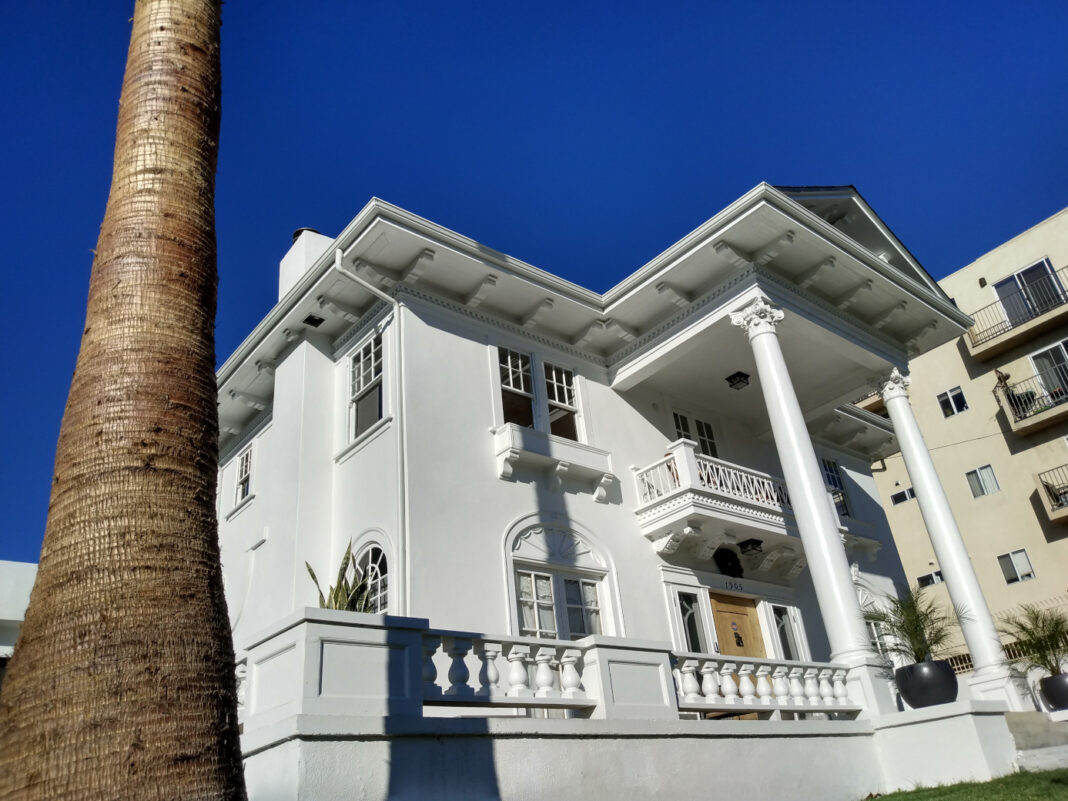UNITED STATES—History was repeating itself, history was going senile and stale. Despite an infestation of German U-boats in the Atlantic, the shipments kept going to New Orleans and Americans could still enjoy corn flakes with soft sweet banana wafers. Quite a few ships were acquired from rival companies like United States Banana that discontinued a route.
The Chamelecón Fleet became a familiar sight on the waterfront and people referred to it as—What else? —the little Navy. The ships cut a blindingly white figure as they coursed through the warm Caribbean waters. As white as Sam Delaney’s mansion to which he’d devoted his first “retirement.” Though the fleet wasn’t so little, numbering 22 ships—a lot were those that other banana companies had discontinued.
Sam Delaney moved the company from headquarters Trujullo to Puerto Cortez, where he built a long cement arm into the sea ships that went far past the shallows almost a mile into the sea. It felt good to do something, to build something even if his own hands didn’t get onto it. Sam Delaney, following the example of Allied Fruit (as they had done with the war now dubbed the first, after this new one erupted) diversified into other crops including tropical fruit (pineapples and coconuts), palm, oil, cattle, sugarcane, and lumber.
Now through hurricane and drought, ups and downs he was able to weather, specially thanks to sugarcane which sold well. It didn’t matter how the market was doing, there was always a sweet tooth to be babied and, even in the rough times, people had a hankering for sugar. This helped Chamelecón to survive the First World War, a period that saw many of the company ships commandeered by the U.S. Navy. Hemp, quinine, and rubber, you bet, were all a hedge against the extreme vulnerability of the banana crop.
By now, Sam had ascended from Director of Operations to President again, and he had the white house to match, that even now came equipped with a movie theater. It was something to please Rebecca and the kids. Sam didn’t have much use for the flickers, not even those of his pal the cowboy star, Jake Taylor.
Bananas likely originated in southeast Asia and spread out to the Indian Valley. The Chinese grew them. War brought the banana to North Africa. War, that killer-inventor, brought them to North Africa. There the crop bred with local species and split off into many varieties. In the time of Shakespeare, Portuguese explorers brought them back from North Africa to Europe. The banana was basically unknown, when it was presented at the World’s Fair, Centennial Exposition celebrating the hundredth birthday of the Republic. Still seen as a delicacy, bananas sold for an astronomical 10 cents a slice, wrapped in foil and eaten daintily with a knife and fork. At that same exposition Alexander Graham Bell presented his speech transmitting invention, which he named the telephone, for which he received a patent on March 7, 1876. Scottish-born…
The sleeping “encephalitus lethargica” sickness added to the labor unrest that Sam had warned the board of directors about in his ignored letter. There was the vivid, eye-popping delirium in Las Vegas of the Río Chamelecón, where all the rich soil built up when it overran its banks in Spring, bringing a rich tide of silt and loam. The blackness. The blackness that fled the Garifuna, as they mixed, ran to the soil. That it should one day be known as the gambling capitol, that arose from the desert, the spawner of debt the white demons brought, the gift-curse of debt, private prosperity and land, all these No Trespassing signs like the stubborn sibling, the sister Sam brought over from the old country, with the rest of the family, his brothers and sisters and an aunt and uncle. Why go to night school?
“Why learn to read so I can read the No Tresspassing signs. I am much better, a naif. An innocent.”
“You’re really kooky,” Sam told his baby sister.
To be continued…
Graydon Miller is the Wizard of Fiction. His new story collection “Watsonville Stories” can be browsed at amazon.com.






